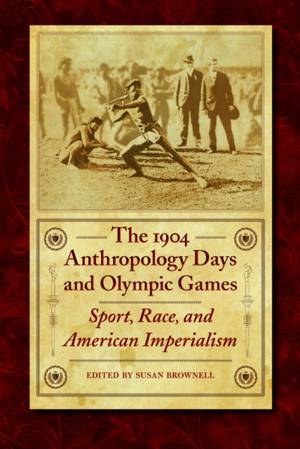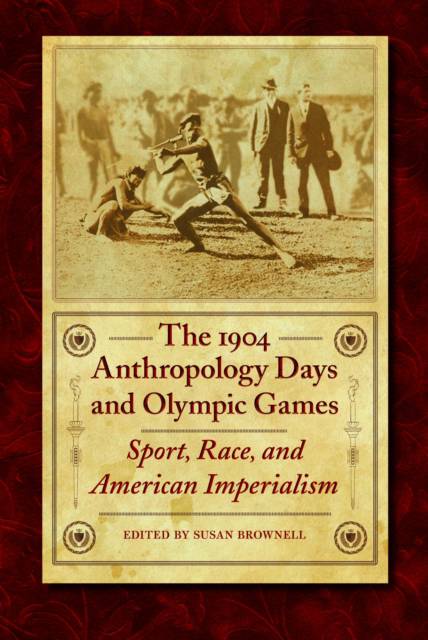
Bedankt voor het vertrouwen het afgelopen jaar! Om jou te bedanken bieden we GRATIS verzending (in België) aan op alles gedurende de hele maand januari.
- Afhalen na 1 uur in een winkel met voorraad
- In januari gratis thuislevering in België
- Ruim aanbod met 7 miljoen producten
Bedankt voor het vertrouwen het afgelopen jaar! Om jou te bedanken bieden we GRATIS verzending (in België) aan op alles gedurende de hele maand januari.
- Afhalen na 1 uur in een winkel met voorraad
- In januari gratis thuislevering in België
- Ruim aanbod met 7 miljoen producten
Zoeken
The 1904 Anthropology Days and Olympic Games
Sport, Race, and American Imperialism
€ 83,95
+ 167 punten
Omschrijving
One of the more problematic sport spectacles in American history took place at the 1904 World's Fair in St. Louis, which included the third modern Olympic Games. Associated with the Games was a curious event known as Anthropology Days organized by William J. McGee and James Sullivan, at that time the leading figures in American anthropology and sports, respectively. McGee recruited Natives who were participating in the fair's ethnic displays to compete in sports events, with the "scientific" goal of measuring the physical prowess of "savages" as compared with "civilized men." This interdisciplinary collection of essays assesses the ideas about race, imperialism, and Western civilization manifested in the 1904 World's Fair and Olympic Games and shows how they are still relevant.
A turning point in both the history of the Olympics and the development of modern anthropology, these games expressed the conflict between the Old World emphasis on culture and New World emphasis on utilitarianism. Marked by Franz Boas's paper at the Scientific Congress, the events in St. Louis witnessed the beginning of the shift in anthropological research from nineteenth-century evolutionary racial models to the cultural relativist paradigm that is now a cornerstone of modern American anthropology. Racist pseudoscience nonetheless reappears to this day in the realm of sports.
A turning point in both the history of the Olympics and the development of modern anthropology, these games expressed the conflict between the Old World emphasis on culture and New World emphasis on utilitarianism. Marked by Franz Boas's paper at the Scientific Congress, the events in St. Louis witnessed the beginning of the shift in anthropological research from nineteenth-century evolutionary racial models to the cultural relativist paradigm that is now a cornerstone of modern American anthropology. Racist pseudoscience nonetheless reappears to this day in the realm of sports.
Specificaties
Betrokkenen
- Uitgeverij:
Inhoud
- Aantal bladzijden:
- 490
- Taal:
- Engels
- Reeks:
Eigenschappen
- Productcode (EAN):
- 9780803210981
- Verschijningsdatum:
- 1/12/2008
- Uitvoering:
- Hardcover
- Formaat:
- Genaaid
- Afmetingen:
- 150 mm x 229 mm
- Gewicht:
- 884 g

Alleen bij Standaard Boekhandel
+ 167 punten op je klantenkaart van Standaard Boekhandel
Beoordelingen
We publiceren alleen reviews die voldoen aan de voorwaarden voor reviews. Bekijk onze voorwaarden voor reviews.








